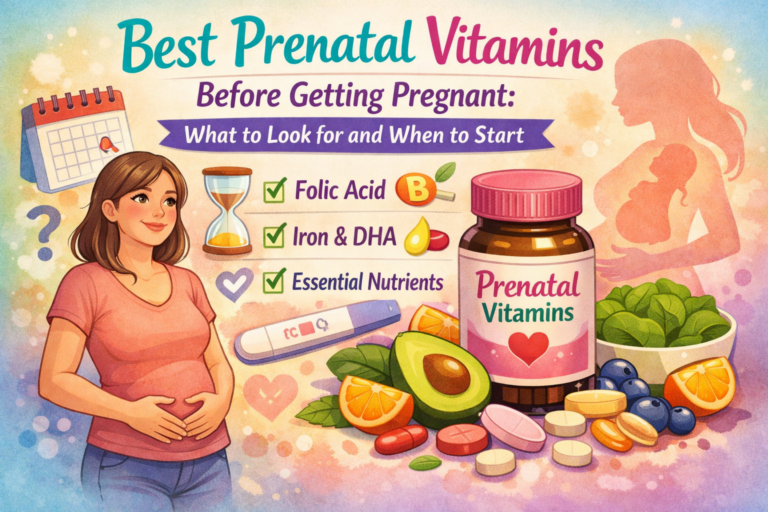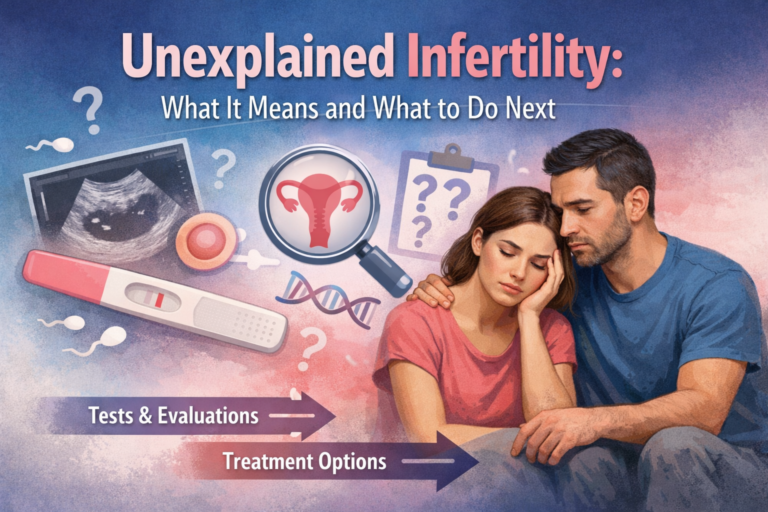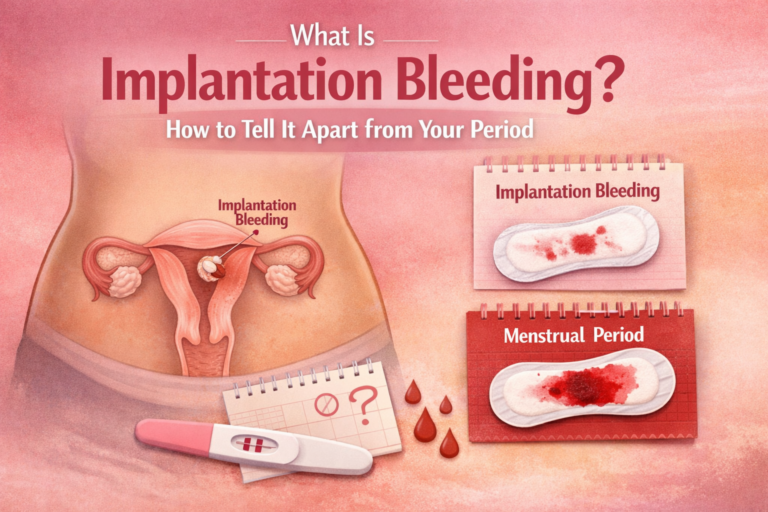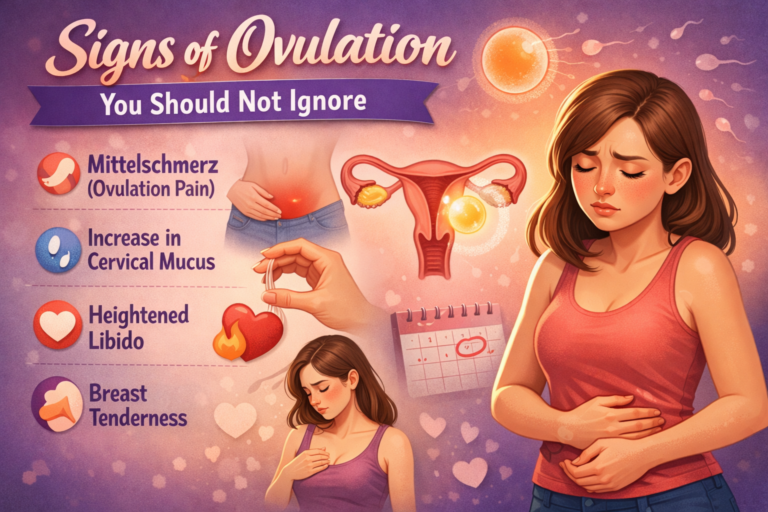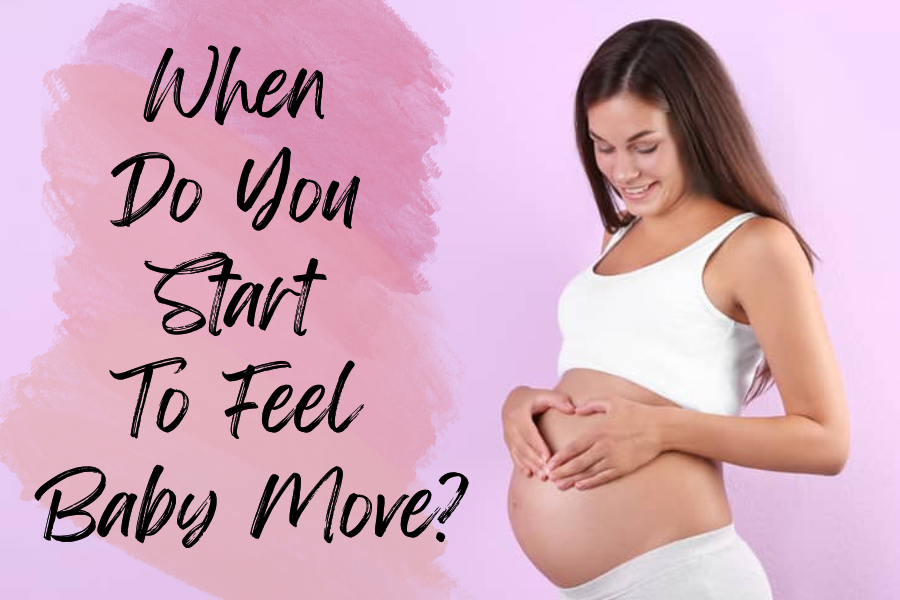
Pregnancy is a remarkable journey with every woman. It is filled with countless milestones, and one of them is the first moment you feel your baby move in the womb. The flutter, kick, or nudge signifies your baby is growing healthy. If you are a new mother, you will surely look forward to that moment more than anyone else. But when do you start to feel baby move?
This article will show you the typical timeframe of a baby moving and other concerns. We also unveil to you how to get your baby to move more. So, continue reading to discover when you might feel your first greeting from your little one.
Why Does Your Baby Need to Move In The Uterus?
Baby movements while getting pregnant are essential for developing their joints, muscles, and bones. This activity helps them grow and prepares them for life outside in the future. Your baby can roll, stretch, kick, and move in your belly. If your baby isn’t moving as much, it could indicate a problem with amniotic fluid levels or your placenta. However, you don’t need to panic. Contact your midwife or doctor for a necessary check-up.
Remember, fetal movement can vary. Some babies may be more active, while others may not. And their moving patterns during the day are also different. You may find your child seems energetic in the morning and a little quiet in the afternoons and evenings. That’s normal and don’t need to worry.
Regular prenatal visits and open communication with your healthcare are the key to ensuring your healthy pregnancy.
When Do You Start To Feel Baby Move?
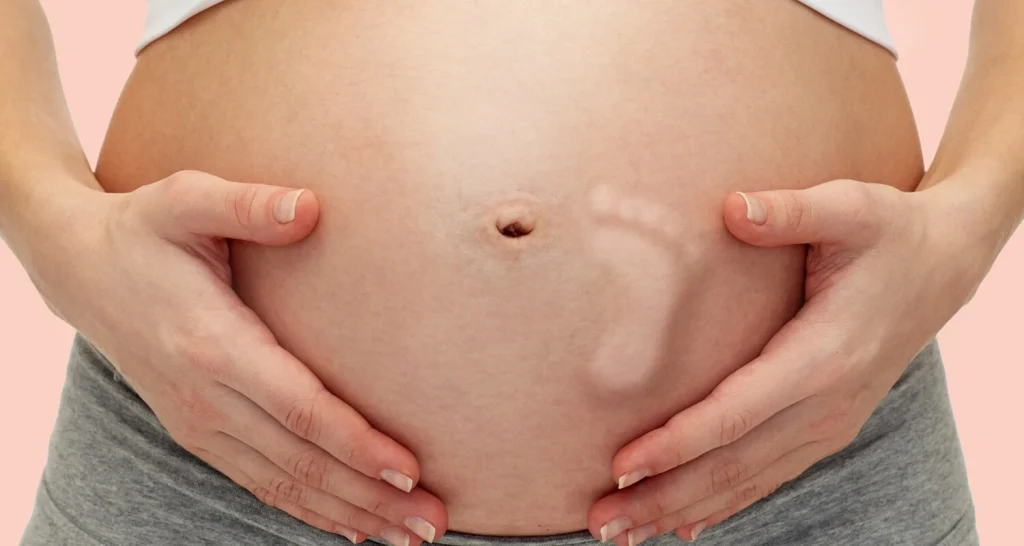
The anticipation of feeling your baby move for the first time is a cherished experience. Let’s monitor your baby’s moving progress:
First Trimester (1-12 weeks)
In fact, your baby starts moving from the very beginning. But because the fetus has a very small size at this moment, unlikely you’ll feel any movement yet.
Second Trimester (13-27 weeks)
During this trimester of your pregnancy, you may feel more relief from morning sickness. Especially, your baby bump is growing and you can feel those first baby kicks! These initial movements, known as quickening, can begin as early as 14 weeks, but 18 weeks is more typical. If this is the first time you have a baby, you may not feel the movements until week 20. If you don’t feel anything by week 24, you should call for medical support.
Your baby is still small and can’t make very strong movements. So what you feel is a strange sensation, known as baby flutter. Experienced mothers may detect movement sooner, even as early as 13 weeks.
In some pregnancies, the placenta implants at the front of the uterus(anterior placenta). This positioning can act as a bit of a cushion, muffling your baby’s movements during pregnancy, especially in the early stages. You may have to wait a little bit longer to feel the moving.
And even when you carry multiples (twins or triplets), it doesn’t mean that you can feel the earlier movement of the fetus in the womb. However, you can expect a lively and acrobatic experience later in pregnancy!
Third Trimester (from 28 weeks)
The third trimester, or “home stretch”, brings a little less space for your baby to move around. This translates to stronger kicks, nudges, and punches that are much harder to miss. Some of these movements can be too forceful and cause you to flinch!
As your baby grows bigger and space becomes tighter, their movements might become less acrobatic and more like nudges or pokes. However, you should still feel consistent movement throughout the day.
Sometimes, the movements may lessen, but they shouldn’t be less frequent or stop. It’s a common myth that babies move less toward the end of pregnancy due to lack of space. You should continue to feel your baby move until labor begins – and even during birth labor itself.
Kick Counts – Monitor Baby Moving
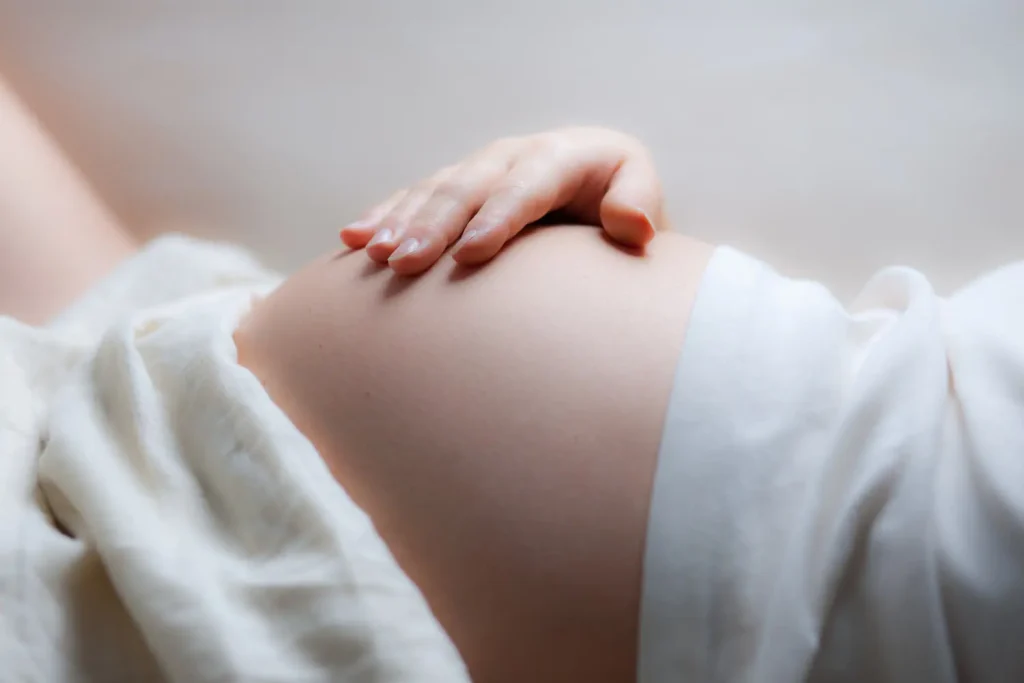
As you enter the exciting third trimester, your doctor might introduce you to kick counts. This is a simple way to monitor your baby’s health. You may be suggested to do this count from week 28 until the end of pregnancy. This is how you can count your baby’s kicks:
- Choose a time when your baby is active for easily counting
- Count twice a day in the morning and evening
- Relax in a comfortable position, maybe sitting or lying down.
- Track all movements you feel, including kicks, flutters, swishes, or rolls. Hiccups don’t count. Stop when you count to 10
- Write down the time and how long it takes for your baby to reach 10 movements.
- Note the strength of the movements compared to previous sessions.
The kick count will be much harder when you have twins or multiples. It is because you can not tell which baby is moving.
Usually, it will take 2 hours to count 10 movements of the baby. If it takes longer, you may need a medical check for assurance. This is not always something that goes wrong, but it can be a warning that needs early monitoring and evaluation.
As you get closer to your due date, kick-counting becomes more important. You should do the count at least 2 times a day. If you notice an unusual or sudden change in movement (decrease or increase), contact your doctor.
Keep in mind: Never use phone apps, handheld monitors, or home Dopplers! These aren’t reliable for monitoring your baby’s health. If you worry something about your child, go to the hospital to have a pregnancy ultrasound and fetal monitors.
What Does It Feel Like When The Baby Move In Your Belly?

If you are getting pregnant for the first time, you might wonder what exactly your baby moving feels like. It is best to feel it by yourself but here is the way we can describe it for you :
- Early In Pregnancy (13-18 weeks): You will feel like a tiny fish is swimming or a butterfly is flying in your stomach. These initial movements are often light and easily mistaken for gas bubbles or hunger pangs. They might feel like a faint rolling motion within your abdomen.
- As Your Baby Grows: The movements become clearer and stronger as your baby grows. They feel like nudges or kicks in different areas of your belly. And when your baby gets bigger and bigger, sometimes you can feel rolling movements as if they are swimming in your belly.1
Sometimes, your baby can have hiccups. These can feel like little ticks in your abdomen. Fetal hiccups are harmless and a normal part of fetal development.
“As pregnancy progresses, those small movements turn into kicks and jabs and even flips as your baby moves around in your uterus,” says Maggie Bolton, a nurse-midwife and clinical director at Quilted Health, Washington. He also said that things will be less erratic when the baby gets bigger. It is because there will be less room to play. “They won’t be doing as many gymnastic routines in your uterus,” reveals Bolton.
How Often Should Your Baby Move In The Womb?
The frequency of your baby’s movements is different at different stages. Don’t expect constant movement, especially early in the second trimester. Your baby is still small, and their movements might be infrequent.
But when your baby grows bigger, their movements become more frequent and clearer. You’ll likely feel them kicking or rolling throughout the day. And when you reach the third trimester, you should feel at least 10 movements of the baby every 2 hours2.
Over time, you might even notice the schedule of your baby’s movement. Your baby can be active in the morning and calmer in the evening, and vice versa. It’s own depends on the fetus’s sleeping cycle. Remember, your baby always needs to rest and sleep just like you. So inactive periods will happen and be normal. Small tips: The safest sleeping position during pregnancy is on the left side, especially when your belly is growing.
FAQs – When Do You Start To Feel Baby Move?
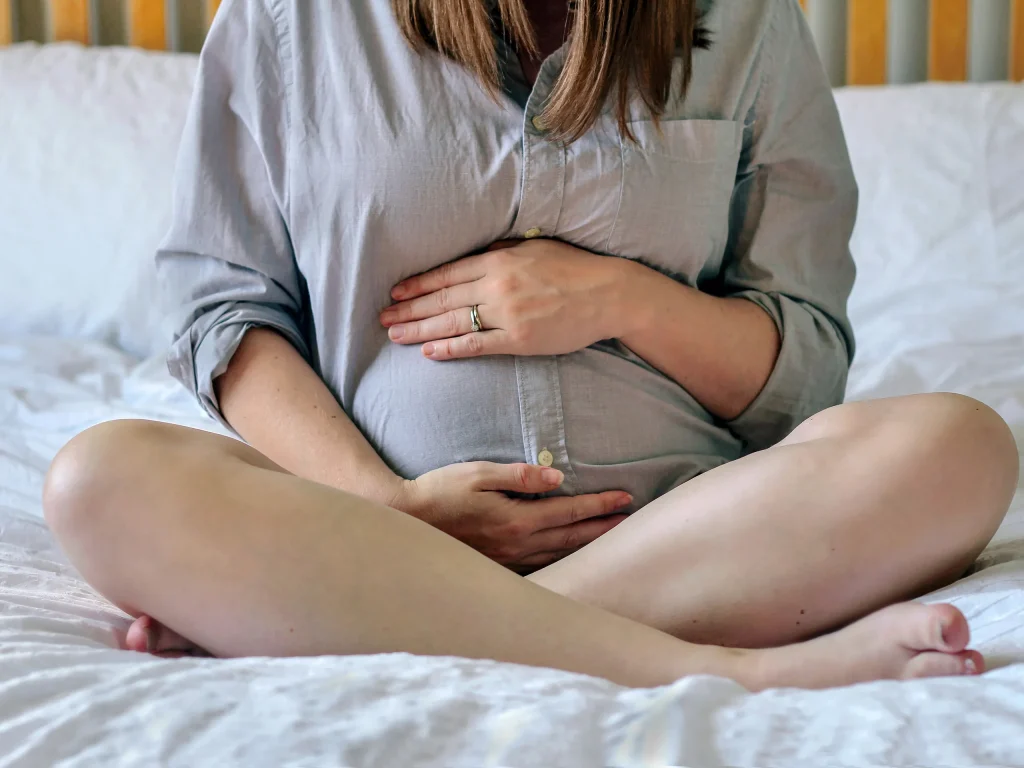
Perhaps you still have many questions in mind, especially if you are a first-time mother. Don’t worry. Babies Parent is here to help.
When Do You Start To Feel Baby Move From Outside?
Feeling your first baby move is always an unforgettable experience. The interesting fact is that other people, your partner and family members, also can feel fetal movement. Around week 20, place a hand gently on your belly and you can feel the kicks and nudges of your little angel.
Later in pregnancy (around weeks 24-28), the kicks may become forceful and you even can see them from the outside. Moreover, your baby’s hearing begins to develop around week 25. So when you talk or sing to your baby, you might feel a kick or two in response!
How To Get Your Baby To Move?
Just like you, your baby has periods of activity and rest. Normally, your baby will be active during the day and quiet when the night comes.
If you haven’t felt any move in a while, there are a few methods you can try to wake your baby:
- Have a sugary drink or a small snack. Rising blood sugar levels can sometimes stimulate fetal movement.
- Take a walk or do some gentle stretches
- Gently rub or tap on your belly to stimulate your baby to response
- Play some calming music near your belly or have someone talk or sing to your baby. New sounds can wake your baby.
What Should You Do If The Baby Move Is So Strong?
If your baby is so playful and you can’t handle it, try to shift your positions. Sitting or lying on your side might nudge them to adjust and make you feel better.
You can even interact and play with your baby when reaching month 8. Next time, if you see some little thing protruding (maybe a foot or knee), try to give it a gentle press. Your baby might play with you by pulling back and pushing out at you in turn.
Your Baby Is More Active After I Have Sex. Is It Risky?
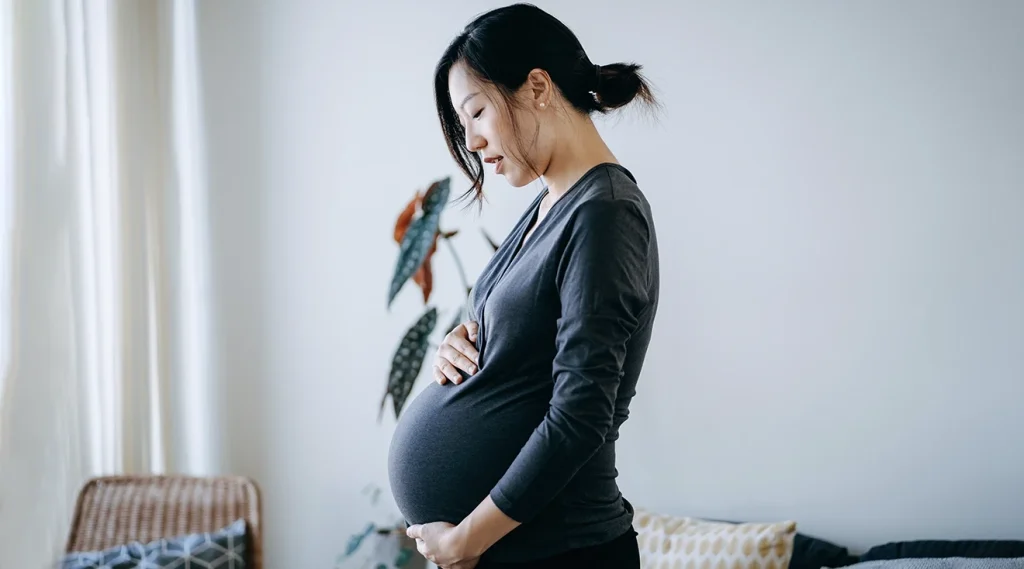
This is the concern of many. If your health is good and your doctor doesn’t ask you not to do that, it’s fine. The rhythmic rocking motion during sex as well as uterine contractions can make your baby more active, while this has a soothing effect on some other babies.3
When To Seek Help From The Doctor?
While the fetal movement is not the same for all, a noticeable decrease should be cautious. Here’s what you need to know:
- Fewer Movements: A significant reduction in the number of movements
- Weaker Movements: A noticeable decline in the strength of your baby’s kicks or movements can also be a warning sign.
- Unusual Rapid Movements: Also maybe concerning
- No Movements Anymore: This is a serious situation, go to the hospital immediately.
These changes can be an early warning sign that your baby needs medical attention. Early intervention can be critical. Remember, if you’re not feeling reassured about your baby’s condition even after a hospital visit, tell your concerns to the doctor and ask for further evaluation.
Bottom Line – BabiesParent
“When do you start to feel baby move?” – Although the time is a little vary between pregnant women, there is a certain timeframe for you to reference. You can start to feel your baby’s movements around week 20, and they will get active more and more when they grow bigger. If you feel anything unusual, go to the hospital immediately. Early checkups are necessary to keep you and your unborn baby safe and healthy.
Sources
- Dresden, D. (2020, March 6). How does it feel when a baby moves during pregnancy? https://www.medicalnewstoday.com/articles/what-does-it-feel-like-when-baby-moves#factors
↩︎ - Baby’s Movements | Women’s Center. (2022, April 8). https://health.uconn.edu/women/pregnancy-and-birth/babys-movements/#:~:text=A%20healthy%20baby%20usually%20moves,changes%20to%20your%20care%20provider. ↩︎
- Sex during pregnancy: What’s OK, what’s not. (2022, July 22). Mayo Clinic. https://www.mayoclinic.org/healthy-lifestyle/pregnancy-week-by-week/in-depth/sex-during-pregnancy/art-20045318#:~:text=Is%20it%20OK%20to%20have,preterm%20labor%20or%20placenta%20problems.
↩︎

